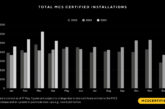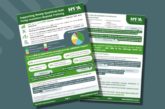
Employment Allowance can reduce the amount of Class 1 National Insurance that employers have to pay by up to £3,000 per year, according to CEO of APHC, John Thompson.
Most plumbing and heating employers can reportedly claim the government’s Employment Allowance, assuming they are paying employers’ Class 1 National Insurance on salaries above the secondary National Insurance Contribution threshold, which is currently £8,424 per year (2018/19).
You can’t, however, claim the Allowance if you’re the director and sole employee and are paid a salary which is over the secondary National Insurance Contribution threshold. Self-employed plumbers and heating engineers, i.e. those who don’t operate via a limited company, are also ineligible to claim against any profits they draw down personally, as they pay Class 2 and Class 4 National Insurance Contributions. However, they can claim if they have employees and make Class 1 National Insurance Contributions.
For those who are eligible, the Allowance itself can be claimed each month through each employer’s payroll process, however, no employers’ Class 1 National Insurance Contributions are payable until your company’s £3,000 allowance has been used up.
Claims can be made at any time in the tax year and if you claim late and don’t use your Allowance, you can ask HMRC to use any unclaimed allowance at the end of the year to pay any tax or National Insurance you owe – including VAT and Corporation Tax – if you don’t owe anything on your PAYE bill. Or you can also request a refund from HMRC after the end of the tax year if you don’t owe anything.
If no claim has been made in previous tax years, £2,000 can be claimed for each previous tax year dating back to 2014/15.
Importantly, people will only be able to benefit from this Allowance if they pay themselves and employees high enough salaries on which to incur and claim back Employers’ National Insurance Contributions – i.e. salaries over the secondary National Insurance Contributions threshold of £8,424 per year (2018/19).
There are certain restrictions surrounding eligibility, so it is advisable to take guidance from a professional accountant.













